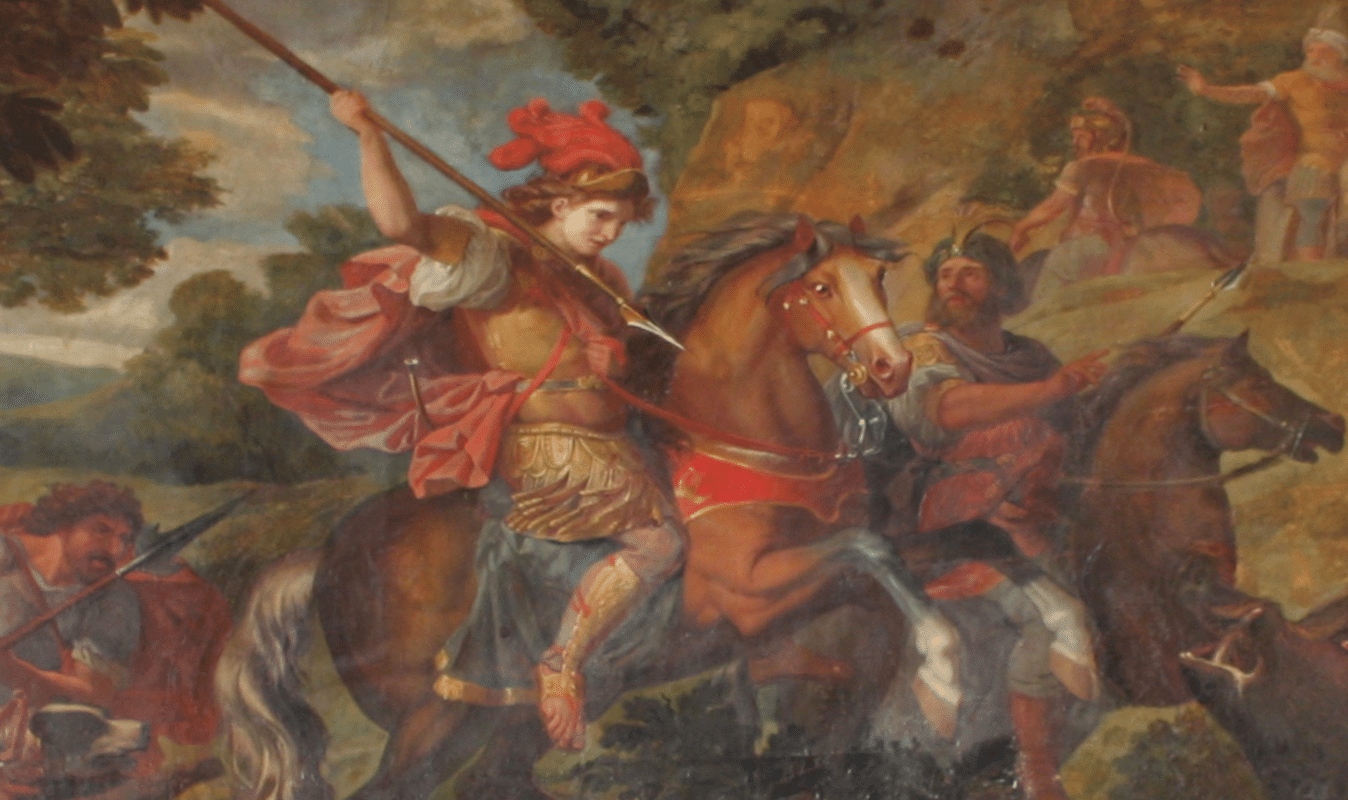

The concept of the Messiah is something that pervades the ancient holy writings of the Jews. The Messiah was a foretold savior of mankind, and Christians identify him with Jesus. However, before Jesus, the Bible reveals that there was a previous Messiah figure who saved the Jews. This was King Cyrus of Persia, the first and only foreign Messiah of the ancient Jews.
To understand how and why Cyrus was the first and only foreign Messiah of the Jews, we need to properly understand the concept of the Messiah itself.
This word, “Messiah,” comes from the Hebrew word “mashiach.” This in turn stems from the root word “mashach,” which is Hebrew for “smear” or “anoint.” These two concepts are interconnected because the Jews would often pour or spread oil (such as perfumed olive oil) on something or someone as a form of consecration or anointment.
For instance, a man would be anointed as the new king by having a small quantity of oil poured on his head. The prophesied Messiah, in a figurative sense, was viewed as anointed in that he had been specially chosen by God as the savior of mankind.
The Jews believed that this Messiah would be Jewish, coming from the tribe of Judah. How, then, could King Cyrus of Persia have been deemed a Messiah?
The answer lies in the fact that the Jews used the word “mashiach” in many other contexts. They did not just use it to refer to the Messiah of prophecy, the one foretold to be the savior of mankind. Rather, they regularly used it for others who had received a special assignment by God.
For example, the Jews called King David a “messiah,” or “anointed one.” They used this same term for other prominent figures, such as King Solomon and the nation’s high priest as well. It was not limited to the Messiah prophesied to redeem mankind.
It is for this reason that King Cyrus was able to be described as a messiah. In other words, he was anointed for a special purpose by God. That is what made him a messiah to the Jews. What was this special purpose?
Around the turn of the 7th century BC, the Babylonians attacked and destroyed Jerusalem. They took the inhabitants, the Jews, back to Babylonia as captives. The Book of Isaiah, credited to the prophet Isaiah of the 8th century BC, foretold that the Jews would be saved from Babylon. The passage in question in Isaiah 45:1 contains the statement:
“This is what Jehovah says to his anointed one, to Cyrus…”
The expression “anointed one” here is a translation of the Hebrew word “mashiach.” In other words, this sentence calls King Cyrus of Persia the Messiah. Interestingly, he is the first and only foreigner referred to as a messiah in the Hebrew Scriptures. All other messiahs are Israelites or direct ancestors thereof.
In what sense was Cyrus a messiah to the Jews? He was not identified as the Messiah who would come to redeem mankind. This is clear by the fact that the Jews continued to foretell the coming of the Messiah after Cyrus’ time.
Rather, King Cyrus was a messiah in the sense that the Jews believed that God had appointed him to a special assignment. This assignment was the salvation of the Jews, providing them with freedom from ancient Babylon.
Cyrus’s role as Messiah involved his conquering Babylon, which he did in the year 539 BC. In the years prior to this, Cyrus had carved out an enormous kingdom for himself. Not only did he defeat the Medes, but he also defeated the Lydians in Anatolia. Subsequently, he marched against Babylon.
In the year 539 BC, Cyrus’ army diverted the Euphrates River to allow the soldiers to wade across the protective moat around the city. Since the Babylonians had carelessly left the city’s gates open, the army marched right in and easily conquered it.
In what appears to have been his first regnal year (that is, from the spring of 538 to the spring of the following year), Cyrus officially freed the Jews, decreeing they could return to Jerusalem. He also helped them by sending them away with the treasures that the Babylonians had taken from Jerusalem’s temple.
In this way, King Cyrus did indeed act as an important Messiah figure for the ancient Jews. He defeated their enemies, freed them from captivity, and enabled them to re-establish their worship in Jerusalem.
Since the Jews believed that God had specially chosen Cyrus for this purpose, he was “anointed” in a sense. It is for this reason that they called him their “Messiah.”
